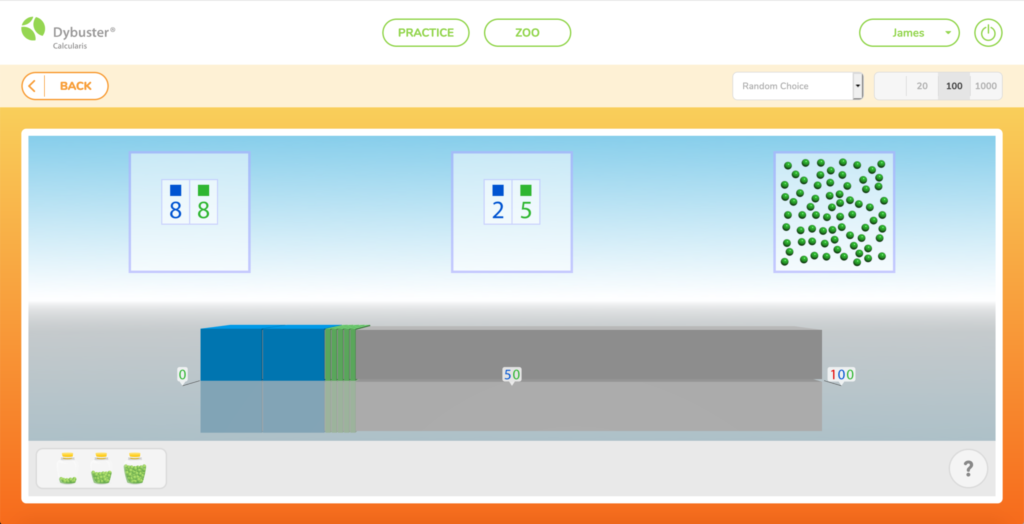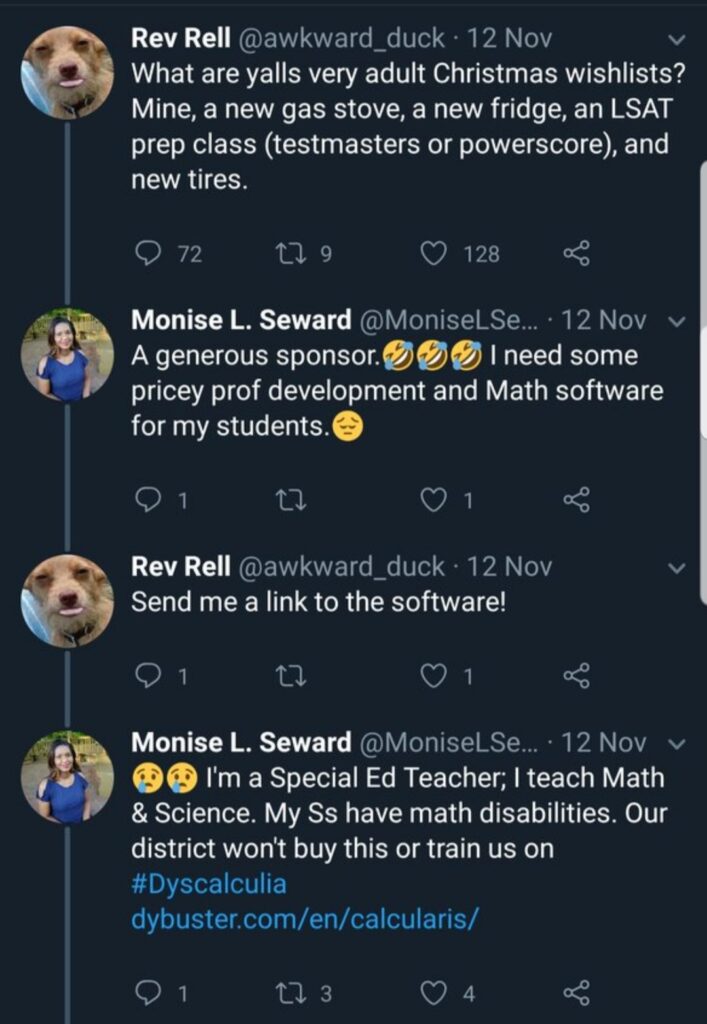This is a guest article from Special Education Teacher Monise Seward; you can find out more about her work on her website – http://www.moniseseward.com/.

For the last eight months, my IG and Twitter posts have focused on two main goals; to find (a) Dyscalculia and Dyslexia training and (b) Math Apps and curricula designed with my students’ needs in mind. Both proved to be challenging and time-consuming endeavours; eventually, I found one.
Dyscalculia is the Learning Difference you’ve probably never heard of, despite 5-10% of the population having it. Based on the challenges non-identified students experience, I believe there are more kids (and adults) with Dyscalculia. We characterise their struggles as ‘Math anxiety’ in this country. Based on conversations had with U.S. teachers, few are aware of the existence of Dyscalculia. They cannot identify the characteristics exhibited by students who may have it. Compounded by a lack of training on Dyscalculia, many teachers adhere to a pacing guide that does not allow time for remediation or accommodations.
During the search, I found Calcularis by Dybuster, a Math program developed by neuroscientists and computer scientists in Switzerland. Calcularis focuses on developing the parts of the brain responsible for processing numbers and calculations. Those are the two areas of Math where my students experience the most challenges. The other programs available to students neither mention nor address the needs of those with Dyscalculia. Other apps mainly provide timed drill exercises. After learning about the challenges associated with Dyscalculia, I decided to emphasise the accuracy aspect of fact fluency rather than speed. Calcularis allows students to both see and manipulate visual representations of concepts such as Multiplication, Number Lines, Greater Than, etc.
The Power of Twitter
So, how did I get my hands on a subscription to Calcularis? Funny story….One night, I was scrolling Twitter when I should have been in bed. I came across the following tweet from @AwkwardDuck:

I knew that if I wanted to get this program for my students, I would need to provide data on how they performed. Well, I did not have any data. I had months’ worth of research on Dyscalculia and the knowledge that no other program was created for my students. If our district curriculum ‘experts’ expect adherence to an ableist pacing guide, it would be almost impossible for me to convince them to purchase a program that benefits students with a little-known disability. Honestly, I did not have the energy for that; I still don’t. I am, however, genuinely grateful for @Awkward_Duck and her generosity.
My students enjoy working on Calcularis; there are no complaints or mumbling when we use it as a daily warmup, or I assign 20 minutes of review for ‘homework’ (not debating that topic, either). I have also seen less ‘thinking’ time when I ask for an answer to a multiplication or division problem; a test cannot measure that kind of progress. Neither can the increase in confidence of the students who struggled with basic calculations at the beginning of the school year. They can see their progress when working in Calcularis. They know that they can offer an answer (with or without their fingers) more quickly than before. For now, those small wins are enough. With the help of a stranger, I now know that the time I spent researching was worthwhile. I found exactly what I was looking for.
Thanks for this.